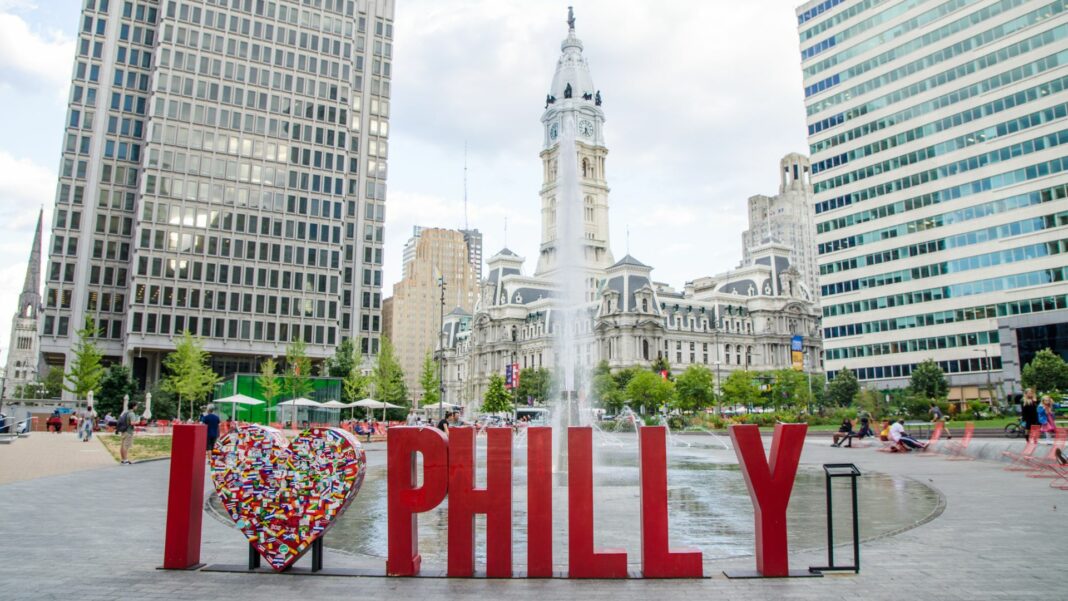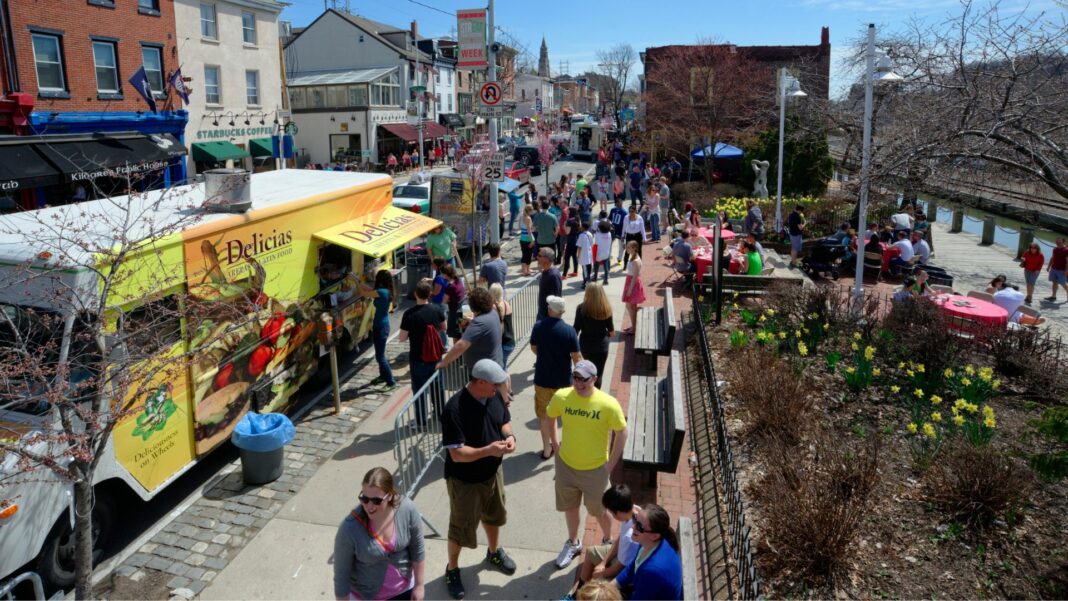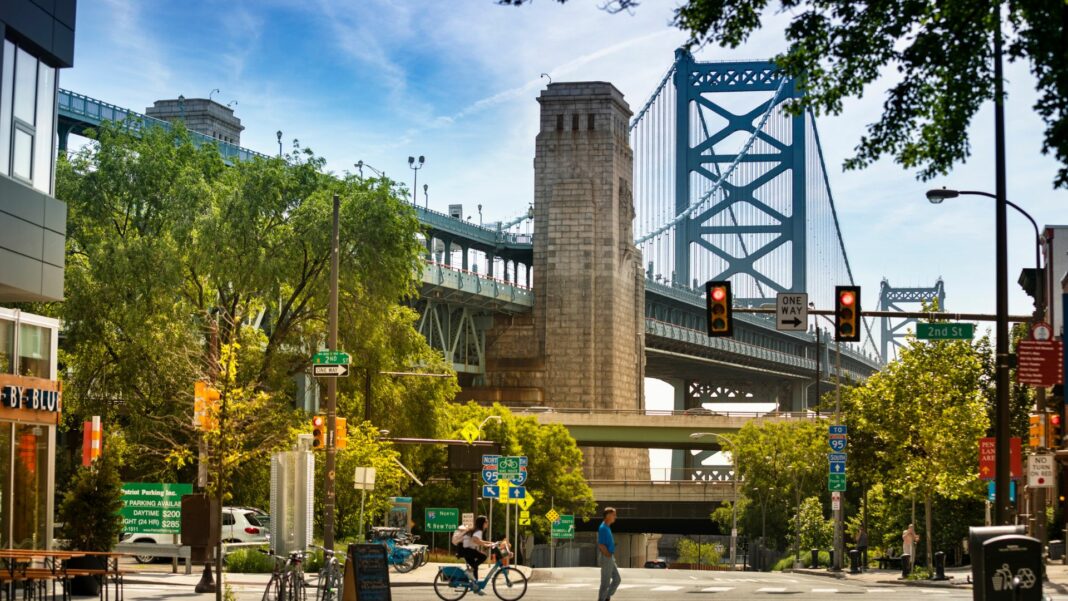
Often called The City of Brotherly Love, Philadelphia is a vibrant and bustling city with a lot to offer. Known for its history and culture, tourists and residents alike enjoy all the best parts of this dynamic city. If you’re interested in moving to Philadelphia, it’s important to do some research before you make a decision. Read on to learn about the pros and cons of living in Philadelphia to help you decide if this city is right for you.
Pro: Philadelphia is a big city with a small-town feel
Despite being a major city, Philadelphia has a certain small-town charm. From the cobblestone streets of Old City to the beautiful residential neighborhoods, there’s an atmosphere of friendliness and community that you can’t find in many larger cities. While it has all the modern amenities of a big city, Philly still has its own distinct identity. It’s a great place to settle down and feel at home.
Con: Like most big cities, Philly is crowded
Philadelphia has seen a steady rise in its population since 2006. By the end of 2020, the city’s population density had a high of 12,000 people per square mile. This trend means that the city may become increasingly crowded in the future, which could result in more people competing for housing, jobs, and services. Overcrowding can be a major downside to living in Philly, and it’s something you should consider before moving here.
Pro: There is a lively culture and an exciting art scene here

Philadelphia is steeped in history, making it a great place to explore and appreciate the past. Additionally, its vibrant art scene rivals that of many larger cities. From its world-renowned art museums, including the Philadelphia Museum of Art, to its endless entertainment options, it’s easy to find something to do in the city. Whether you prefer live music and theater performances or art galleries and festivals, there’s a wealth of cultural activities you can enjoy here, making it a fun place to live.
Con: There’s a wage tax
The city imposes a wage tax on the gross wages of residents, as well as non-residents who work in Philly. This means that if you live here, you can expect a deduction of almost 4% from your paycheck. While this may not be a huge amount, it can add up over time, so it’s important to factor this into your finances.
Pro: The public transportation system is expansive and efficient

Owning a car isn’t essential in Philly because of its excellent public transportation system. This consists of a network of buses, trains, subways, and even trolleys that make it easy to move around the city. It’s also worth noting that the city is known for being walkable and bike-friendly, which is also a huge advantage because you don’t always have to own a vehicle or rely on public transport to reach your destination.
Con: The job market isn’t very diverse
The education and health services supersector dominates Philly’s job market. Over the course of 2022, it added around 30,800 new jobs in the metropolitan area, which is more than the increase in other sectors, including professional and business services, leisure and hospitality, and manufacturing. The limited diversity in the job market is a major drawback, especially if your profession isn’t in the field of education or health care.
Pro: Rent is affordable
One of the biggest advantages of living in Philly is its surprisingly affordable rent. The average monthly rent for a one-bedroom apartment in Philadelphia is $1,397. While this is only slightly lower than the $1,497 national average, it’s important to note that Philly is a cheaper option than many other major cities, including Los Angeles, Boston, Chicago, and New York City.
Con: The weather can be unpredictable
While long-time residents may beg to differ, for newcomers, it may be difficult to plan for the weather in Philly. Even if the city generally experiences mild temperatures, extreme weather conditions, such as snowstorms and heat waves, aren’t a rare occurrence. Rain is also common throughout the year. If you find it difficult to adapt to ever-changing weather, Philly may not be the best place for you.
FAQ: Living in Philadelphia
Here are answers to a few frequently asked questions that you may also have about life in Philadelphia:
Philadelphia occupies a prime location that’s near major and popular cities, such as Washington, D.C., Jersey City, Virginia Beach, Newark, Baltimore, and New York City. Depending on where you’re coming from and your mode of transportation, you can get to any of these cities within a few hours. Philadelphia is also close to some of the most beautiful natural scenery in the Northeast, like the Pocono Mountains and Jersey Shore. All in all, living in Philly means having easy access to some of the best cities and destinations in the U.S.
Livingcost.org estimates the cost of living in Philadelphia to be $2,361. This is slightly more than the national average, which is $2,112. However, it’s a more affordable option than many major cities, including Boston, New York, and Los Angeles.
Philadelphia has a humid subtropical climate with four distinct seasons. Summers in the city can be hot and humid, with temperatures averaging around 85°F in July. Winters are generally cold and sometimes snowy, with temperatures averaging around 30°F in January. Spring and fall are mild and pleasant, with temperatures averaging around 60-70°F.
Philadelphia has many desirable neighborhoods to consider. Some of the most popular neighborhoods in Philly include Fairmount, Northern Liberties, Old City, and Rittenhouse Square.
Final thoughts
Ultimately, living in Philadelphia is a great choice if you’re looking for exciting city life while enjoying the beautiful natural scenery of the Northeast. There are plenty of advantages to it, from its diverse neighborhoods and culture to its convenient public transportation system. Plus, you can enjoy a lower cost of living than in many other big cities.
There are also drawbacks to life in Philly, such as the wage tax and unpredictable weather. However, these are outweighed by the many positive aspects of the city. Despite this, it’s still a good idea to do your own research and find out more about the city before you make this major life decision.



